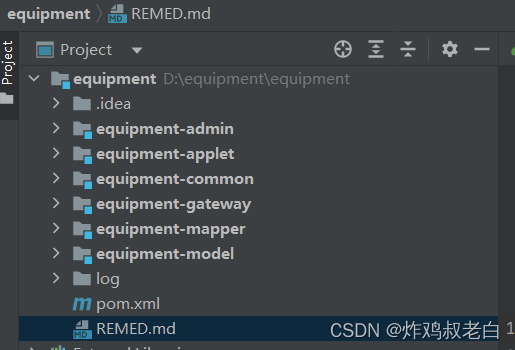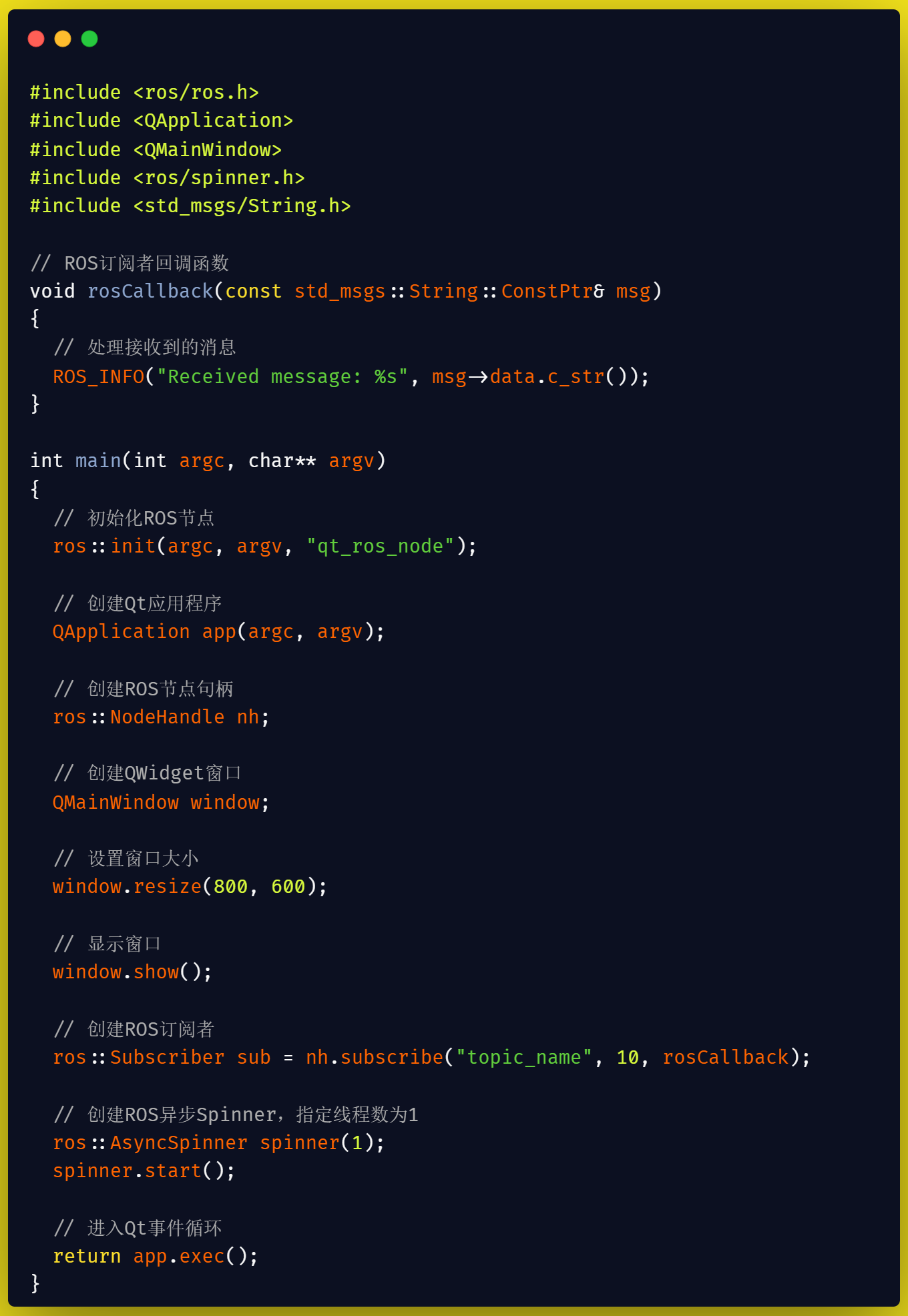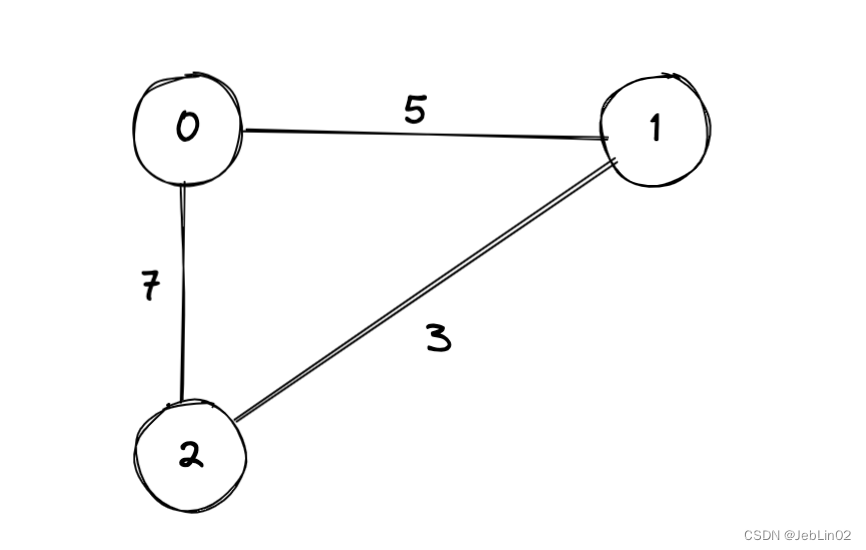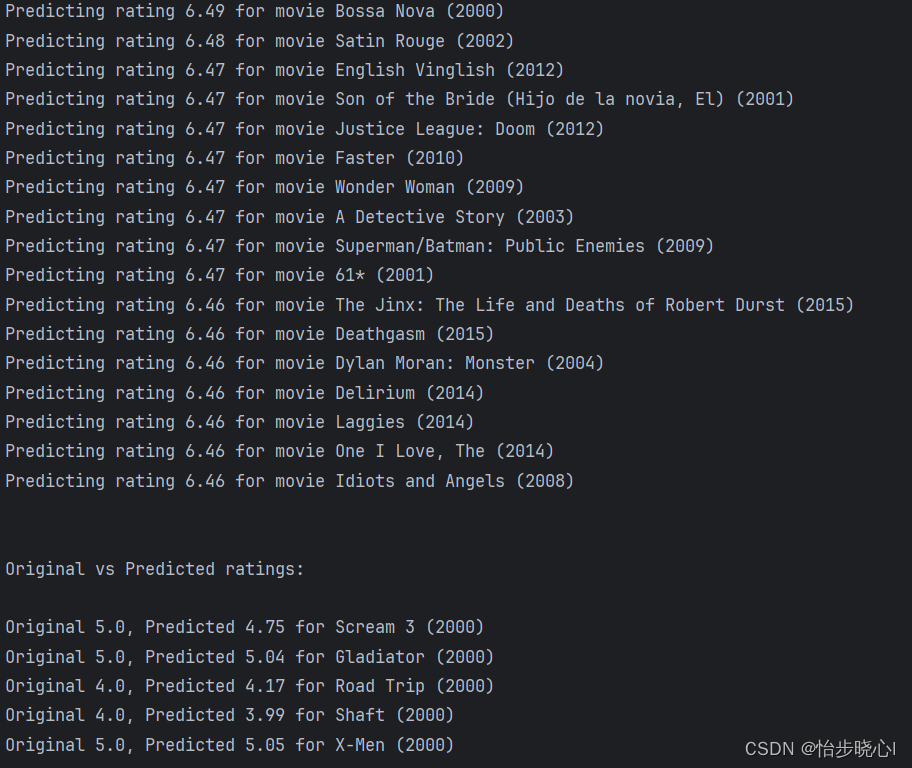文章目录
- 数值函数
- round():四舍五入
- ceiling():上限函数
- floor():地板函数
- abs():计算绝对值
- rand():生成0-1的随机浮点数
- 字符串函数
- length():获取字符串中的字符数
- upper() / lower():将字符串转化成大小写
- trim/ltrim/rtrim:删除字符串中不需要的空格
- left /right /substr:返回字符串相应位置字符
- locate:返回第一个字符或一串字符匹配位置
- replace:替换字符或字符串
- concat:串联两个字符串
- 日期函数
- now() / curdate() / curtime():返回当前的日期和时间 / 返回当前日期 / 返回当前时间
- year(now()) / month() / day() / hour() / minute() / second() 提取特定日期或时间
- dayname(now()) / monthname():返回字符串类型的星期和月份
- extract(day from now()):返回指定的时间或日期
- 练习1
- date_format():日期格式函数
- time_format():时间格式函数
- date_add():给日期时间值增加日期,写负值也能减
- date_sub():给日期时间值减去日期,写负值也能加
- datediff():返回两个日期的天数间隔
- time_to_sec():返回从零点计算的秒数
- 其他函数
- ifnull()
- coalesce()
- 练习1
- if():单一表达式
- 练习2
- case运算符:多个表达式
- 练习3
数值函数
- 可查看所有的数值函数
round():四舍五入
- 参数1
select round(5.37)
运行结果
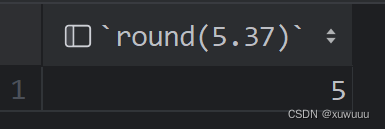
- 参数2,可指定四舍五入的精度
select round(5.37,1)
运行结果

ceiling():上限函数
- 返回大于或等于这个数字的最小整数
select ceiling(5.1)
运行结果

floor():地板函数
- 返回小于或等于这个数字的最大整数
select floor(5.8);
运行结果

abs():计算绝对值
select abs(-3.5);
运行结果
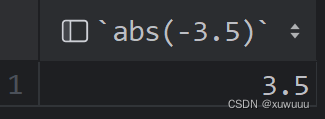
rand():生成0-1的随机浮点数
select rand()
运行结果

字符串函数
- 可查看所有的字符串函数
length():获取字符串中的字符数
select length('xuwuuuu')
运行结果

upper() / lower():将字符串转化成大小写
select upper('xuwuuuu');
运行结果

select lower('XUWUUUU')
运行结果

trim/ltrim/rtrim:删除字符串中不需要的空格
- ltrim():移除字符串左侧的空白字符或其他预定义字符
select ltrim(' xuwuuu')

- rtirm():移除字符串右侧的空白字符或其他预定义字符
select rtrim('xuwuuu ');

- trim():删除所有前导或尾随空格,但不能删除字符串中间的空格
select trim(' xuwuuu ')

left /right /substr:返回字符串相应位置字符
- left():返回字符串左侧的几个字符
select left('xuwuuuuu',3)

- right():返回字符串右侧的几个字符
- substr():字符截取函数,可以得到任何位置的字符;
- 第二个参数是起始位置,第三个参数是长度;
- 也可以不写第三个参数,这样就返回从起始位置到字符串最后的所有字符。
select substr('xuwuuuuu',3,2);

locate:返回第一个字符或一串字符匹配位置
- 这个函数不区分大小写
- 返回指定的字符在字符串中第一次出现的位置。
select locate('u', 'xuwuuuu')

- 如果指定的字符在字符串中没有,会返回0
select locate('y', 'xuwuuuu')

- 还可以搜索一串字符串
- 同样,要搜索的字符串不存在时,也会返回0
select locate('uuuu', 'xuwuuuu')

replace:替换字符或字符串
- 第一个参数:完整的字符串;第二个参数:要被替换掉的字符或字符串;第三个参数:新的字符或字符串
select replace('xuwuuuuu', 'xu', 'st')

- 一个字符替换一个字符串也是可以的,一个字符串替换一个字符也可以
select replace('xuwuuuuu', 'xu', 's')

select replace('xuwuuuuu', 'x', 'st')

concat:串联两个字符串
select concat('xu', 'wuuuu')

- 练习:把表中的名和姓串联起来
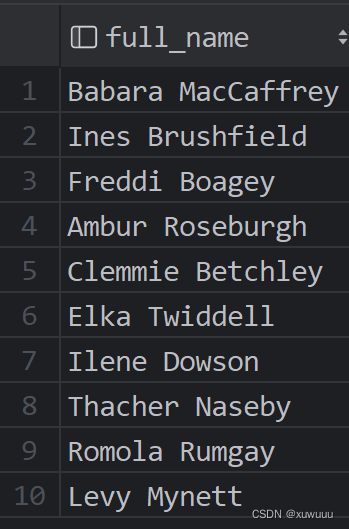
use sql_store;
select concat(first_name, ' ', last_name) as full_name
from customers
日期函数
now() / curdate() / curtime():返回当前的日期和时间 / 返回当前日期 / 返回当前时间
select now(), curdate(), curtime();

year(now()) / month() / day() / hour() / minute() / second() 提取特定日期或时间
- 返回整数值
select year(now()), month(now()), day(now()),
minute(now()), second(now())

dayname(now()) / monthname():返回字符串类型的星期和月份
- 返回字符串
select dayname(now()), monthname(now())

extract(day from now()):返回指定的时间或日期
- 要定制单位,如年、月、日期、秒等
select extract(day from now()),
extract(year from now()),
extract(month from now())

练习1
- 筛选当前年份的订单。把当前时间的年份提取出来,再把订单日期的年份提出来,筛选两个年份相等的数据。
use sql_store;
select *
from orders
where year(order_date) = year(now())
date_format():日期格式函数
-
格式说明符查询连接
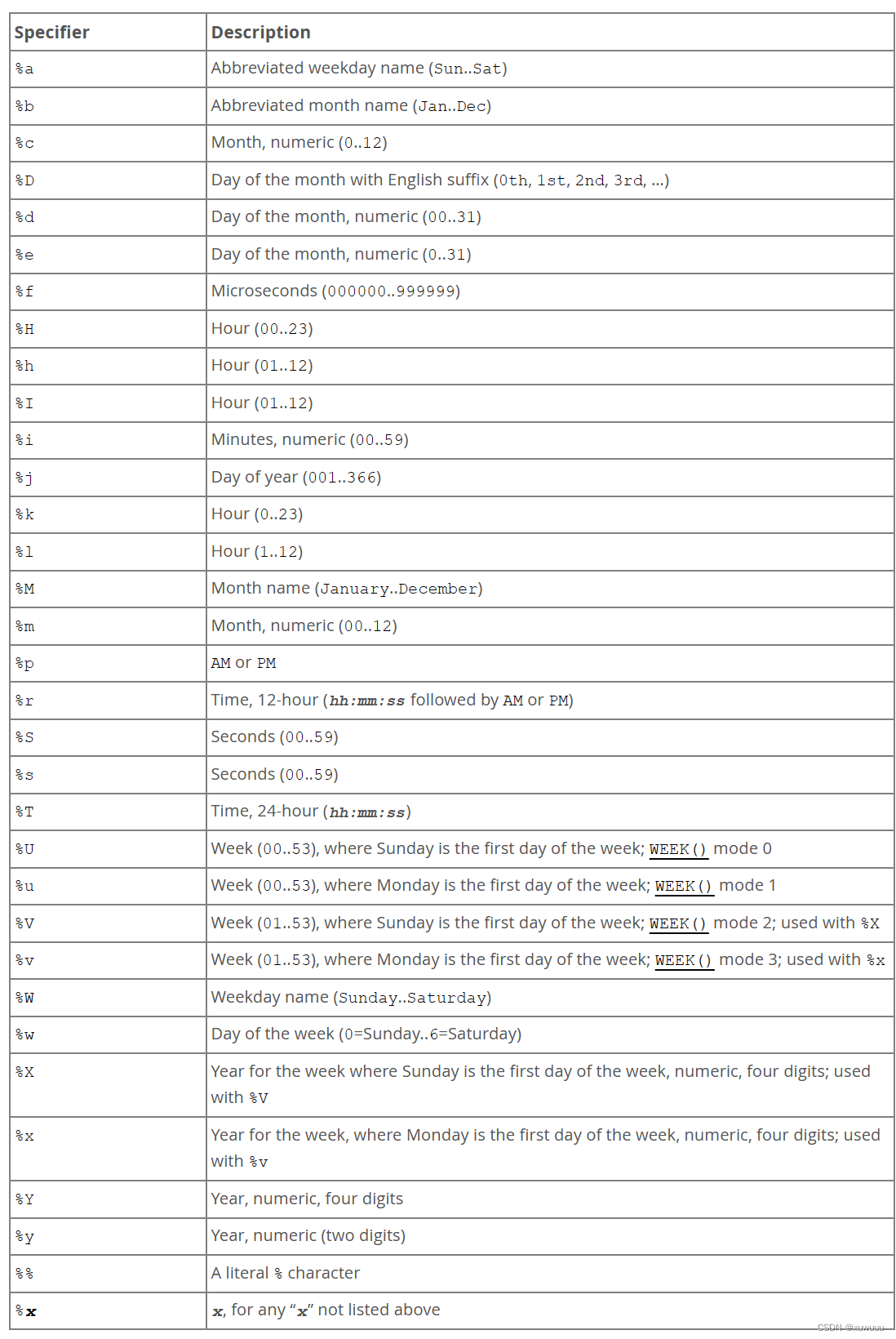
-
两个参数。
-
一个是日期值
-
一个是格式字符串
- %y:两位数的年份
- %Y:四位数的年份
- %m:两位数的月份
- %M:字符串的月份
- %d:获取当前日期
select date_format(now(), '%M %d %Y')

time_format():时间格式函数
- 两个参数;一个是时间值,一个是格式字符串。
select time_format(curtime(), '%H:%i %p')

date_add():给日期时间值增加日期,写负值也能减
- 想在当前日期时间上增加一天
- 第二个参数
- interval 1 day;
- interval 3 year;
- interval -1 year;获取过去的时间
select date_add(now(), interval 1 day),
date_add(now(), interval -3 year)
返回了明天的同一时间(写码当前是2023-11-29),返回3年后的同一时间

date_sub():给日期时间值减去日期,写负值也能加
select date_sub(now(), interval 4 day),
date_sub(now(), interval -3 year)

datediff():返回两个日期的天数间隔
- 只返回天数的间隔,不考虑时间的间隔
- 两个时间的顺序调换,会得到正值或负值
select datediff('2023-11-29 22:02', '2022-11-29 21:02'),
datediff('2022-11-29 22:02', '2023-11-29 21:02')

time_to_sec():返回从零点计算的秒数
- 返回从零点计算的秒数
select time_to_sec('00:30'),
time_to_sec(curtime())

- 返回两个时间间隔的秒数
select time_to_sec('22:10') - time_to_sec('22:00')

其他函数
ifnull()
- 有些订单的发货id是空值。如果想让用户看到的是“未分配”而不是空值,可以调用ifnull()函数,把发货id替换成别的。
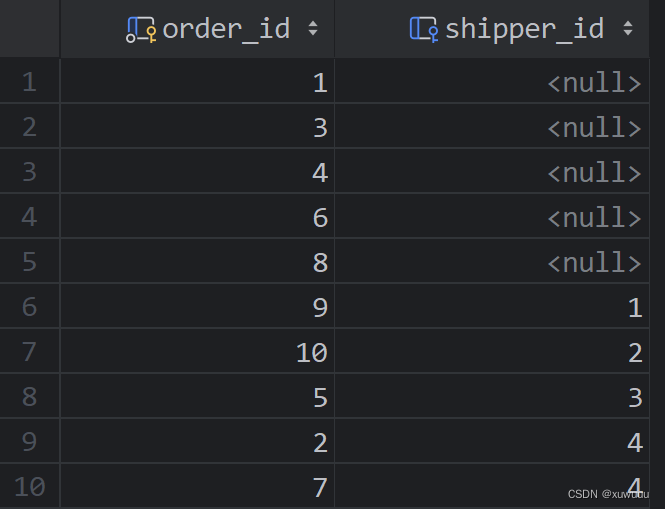
use sql_store;
select order_id,
ifnull(shipper_id, 'Not assigned') as shipper
from orders
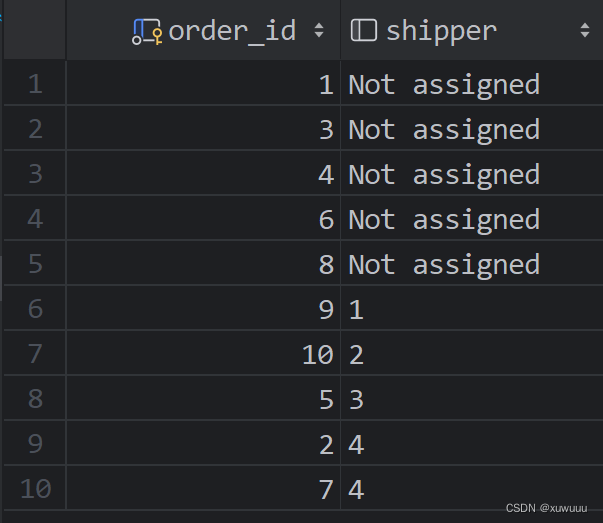
coalesce()
- 如果参数1是null,就返回参数2;参数2为空,就返回参数3
- 写一堆参数,coalesce函数会返回这堆参数中第一个非空值。
use sql_store;
select order_id,
coalesce(shipper_id, comments, 'Not assigned') as shipper
from orders
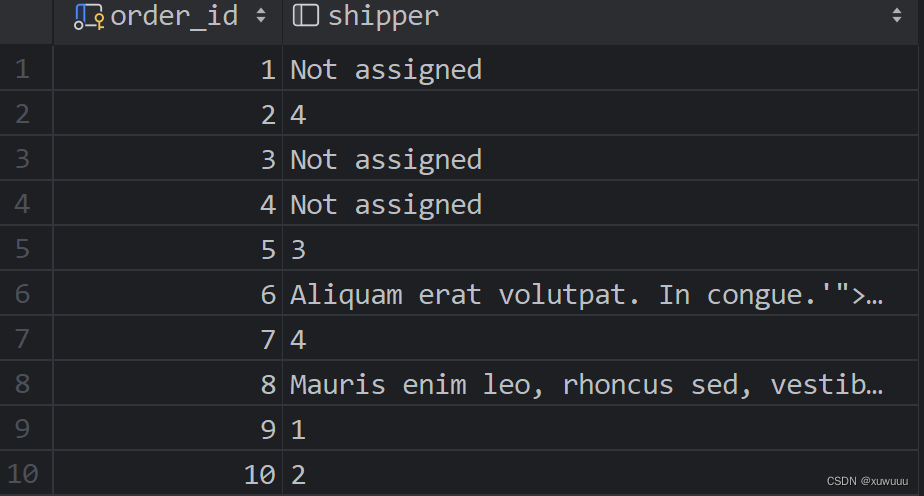
练习1
- 返回客户的姓名和电话,没有电话的显示Unknown
- concat()函数串联字符串!
select concat(first_name, ' ', last_name) as customer,
ifnull(phone, 'Unknown')
from customers
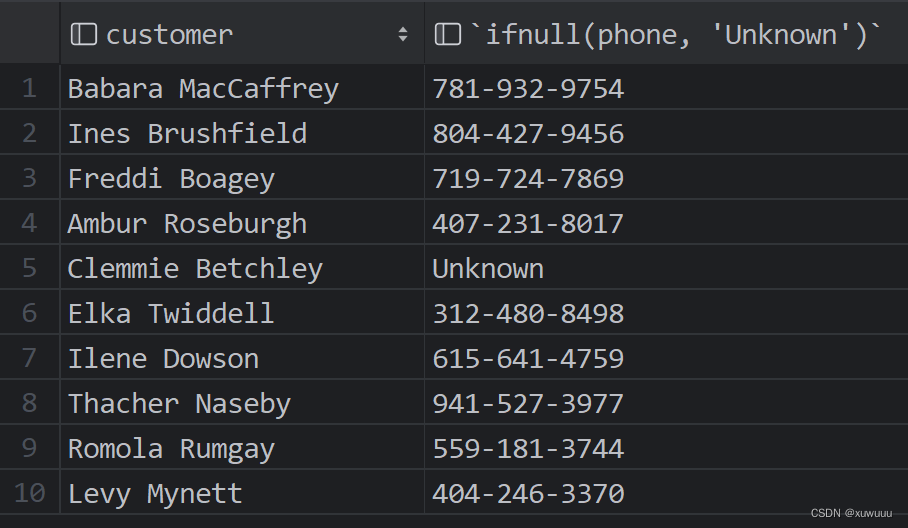
if():单一表达式
- if(expression,first,second):如果表达式为真,则返回first,否则返回second
- 把订单分类,如果订单是今年的,就放在“活跃类别”;否则就放入“归档类别”
- 可以用union,筛选活跃类别的,再筛选归档类别的,用union连接起来
- 可以用if函数,达到同样效果
select order_id,
order_date,
if(year(order_date) = '2019', 'Active', 'Archived') as category
from orders
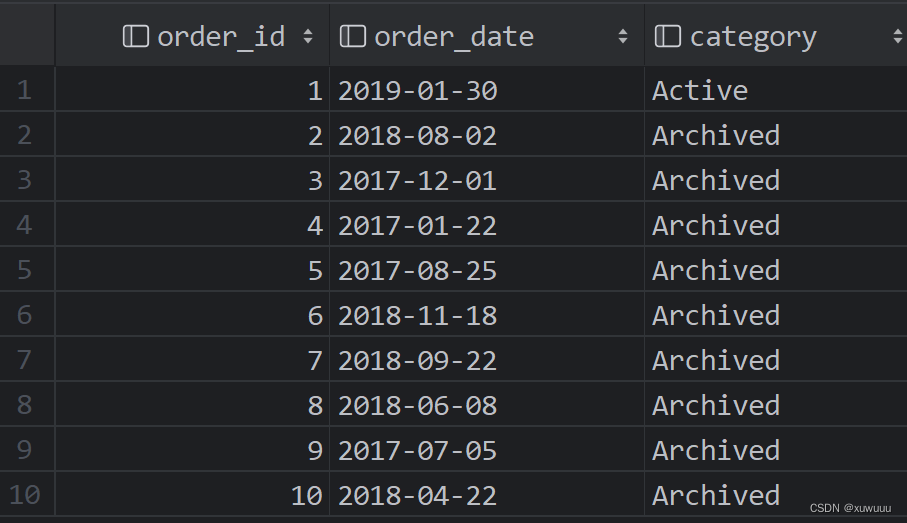
练习2
- count(*)按照product_id进行计数,就能得到每个id对应有多少数据。
select product_id,
name,
count(*) as orders,
if(count(*) > 1, 'Many times', 'Once') as frequency
from products
join order_items using (product_id)
group by product_id
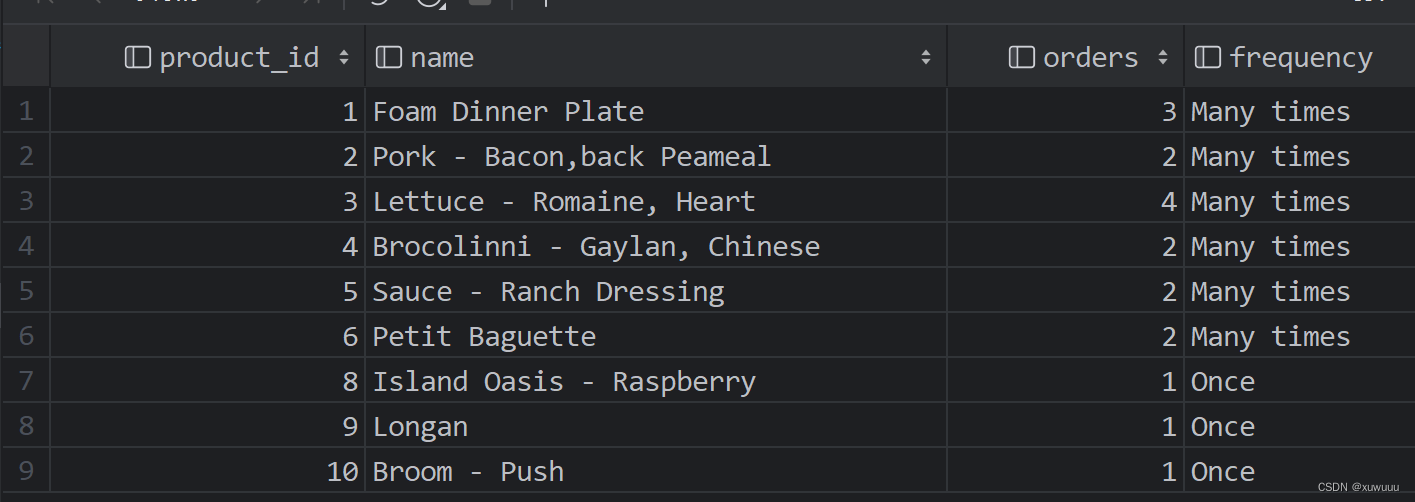
case运算符:多个表达式
- 在有多个表达式且想针对每个表达式返回不同值时,适用case运算符
- case
when …… then
when …… then
when …… then
else
end as ……
select order_id,
order_date,
case
when year(order_date) = '2019' then 'Active'
when year(order_date) = '2018' then 'Last Year'
when year(order_date) < '2018' then 'Archived'
else 'Future'
end as category
from orders;
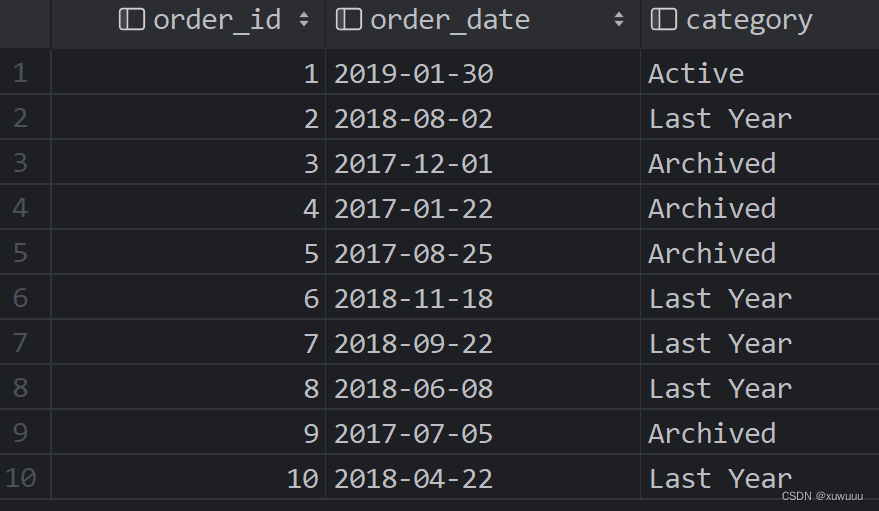
练习3
- 按照积分给客户分为3类。
select concat(first_name, ' ', last_name) as customer,
points,
case
when points > '3000' then 'Gold'
when points between '2000' and '3000' then 'Sliver'
when points < '2000' then 'Bronze'
end as category
from customers
order by points desc
select concat(first_name, ' ', last_name) as customer,
points,
case
when points > '3000' then 'Gold'
when points >= '2000' then 'Silver'
else 'Bronze'
end as category
from customers
order by points desc;
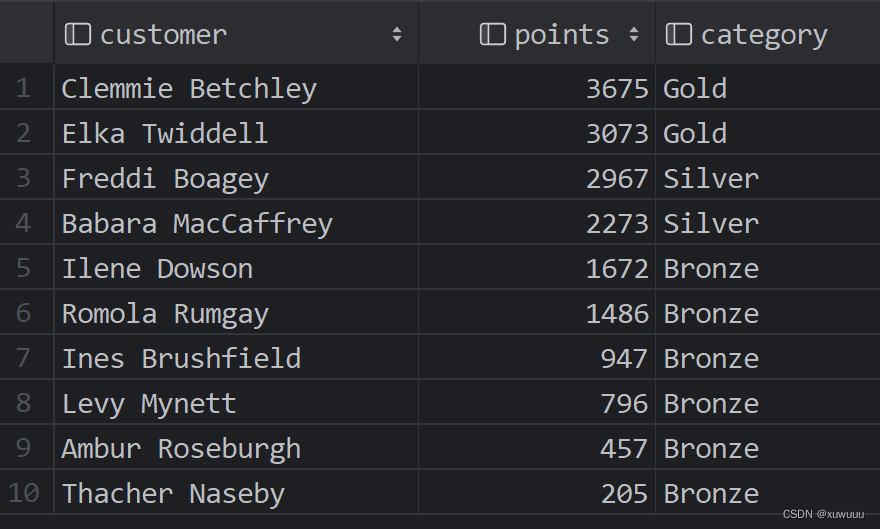
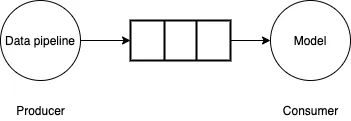

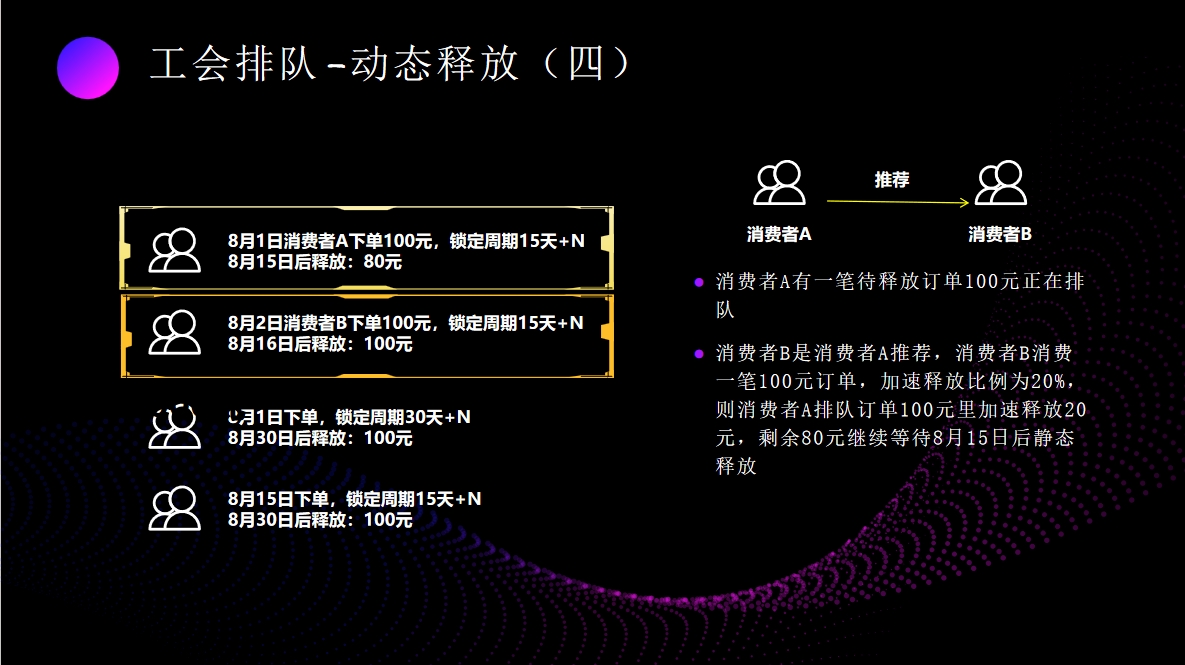
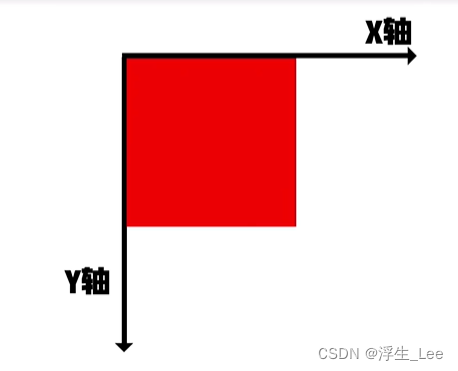






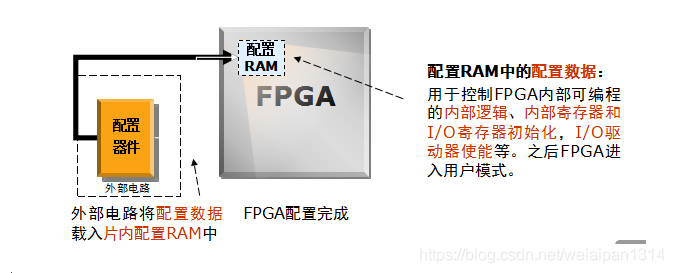
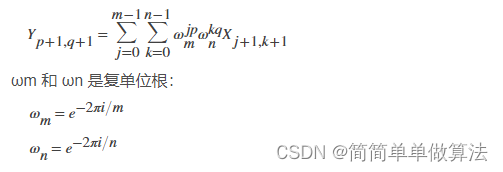
![[密码学]DES](https://img-blog.csdnimg.cn/direct/35cb8bb4644e4840a37ff4d27f13b99f.png)
